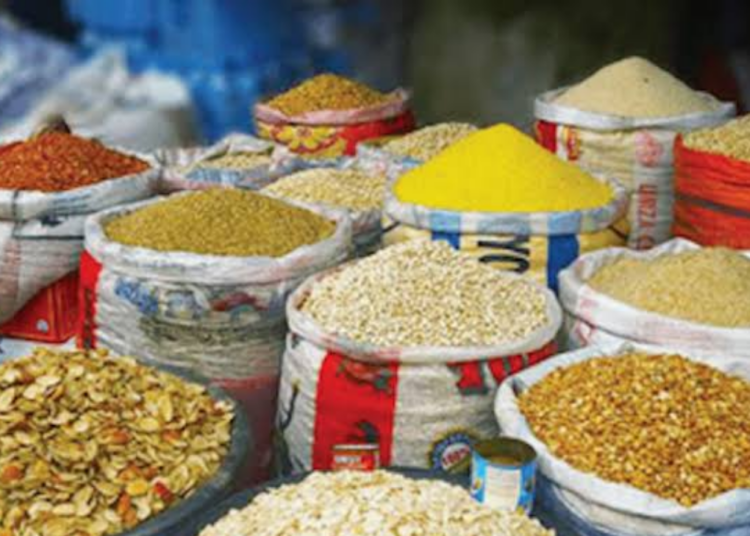Despite a slowing inflationary pressure in many parts of the world including the United States, United Kingdom, Euro area, South Africa and even Ghana, inflation is rising in Nigeria, reflecting the impact of fuel subsidy removal and naira depreciation.
Figures released by the National Bureau of Statistics (NBS) showed that in September 2023, the headline inflation rate increased to 26.72 per cent relative to the August 2023 headline inflation rate which was 25.80 per cent. The September 2023 headline inflation rate showed an increase of 0.92 percent points when compared to the August 2023 headline inflation rate.
The pressure point is more on food which contributes about 14 percent (over 50 per cent) of the 26.72 per cent. The pressure is felt more in the Urban than in rural areas possibly on account of high transport costs.
Food inflation rate in September was 30.64 per cent on a year-on-year basis, which was 7.30 per cent points higher compared to the rate recorded in September 2022 (23.34 per cent).
“The rise in Food inflation on a year-on-year basis was caused by increases in prices of oil and fat, bread and cereals, potatoes, yam and other tubers, fish, fruit, meat, vegetables and milk,
Cheese, and eggs,” the NBS said in the data that was released yesterday.
Professor of capital market in Nasarawa State University, Keffi, Uche Uwaleke said the trend in the inflation rate is quite worrisome given its impact on the purchasing power of the naira and by extension on poverty level. He also partly blamed it for the increasing dollarisation of the Nigerian economy and the demand pressure in the forex market.
In the month under review, prices of refined petrol in Nigeria rose to between N625 and N700 per litre. Last week, the Central Bank of Nigeria announced the lifting of an eight-year ban on locally manufactured goods to encourage consumption of the ones manufactured locally.
On a year-on-year basis, the headline inflation rate was 5.94 percent points higher compared to the rate recorded in September 2022, which was 20.77 percent.
This shows that the headline inflation rate (year-on-year basis) increased in September 2023 when compared to the same month in the preceding year (i.e., September 2022).
Professor Uwaleke said in view of the supply-side factors driving inflation in Nigeria including rising cost of transport, energy, flooding and insecurity, “the government must play complementary roles to that of the CBN through tackling insecurity, massive investments in power and agriculture in partnership with the private sector as well as ensuring the speedy resuscitation of the refineries in order to bring down the cost of transport as well as help naira appreciation in the forex market when an end is put to import of petroleum products.”
On a month-on-month basis, the headline inflation rate in September 2023 was 2.10 per cent, which was 1.08 per cent lower than the rate recorded in August 2023 (3.18 per cent).
The rural inflation rate in September 2023 was 24.94 per cent on a year-on-year basis; this was 4.62 percent points higher compared to the 20.32 per cent recorded in September 2022. On a month-on-month basis, the rural inflation rate in September 2023 was 1.96 per cent, down by 1.12 per cent compared to August 2023 (3.08 per cent).
On a year-on-year basis, in September 2023, the urban inflation rate was 28.68 per cent, this was 7.43 per cent points higher compared to the 21.25 percent recorded in September 2022. On a month-on-month basis, the urban inflation rate was 2.24 per cent in September 2023, 1.05 per cent points lower compared to August 2023 (3.29 per cent).
We’ve got the edge. Get real-time reports, breaking scoops, and exclusive angles delivered straight to your phone. Don’t settle for stale news. Join LEADERSHIP NEWS on WhatsApp for 24/7 updates →
Join Our WhatsApp Channel










